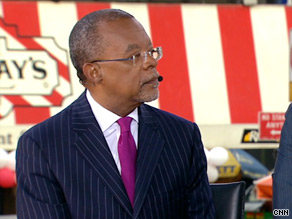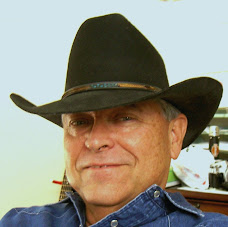 America's Black President. Let's face it. That is the only reason this man occupies the White House today. He is an unvetted, empty suit and each day he gives us more reason to rue the day we elected him. He is using the highest office in this land to spew his racial hatred and further divide our country. He is more polished than Jesse Jackson, or Al Sharpton, but he is of the same misguided ilk seeking personal and financial gain by changing the focus from real issues by throwing down the race card. His eloquence disappears whenever the teleprompter goes awry. This will probably not be covered properly by the national media, so I am going to bring it up. I am qualifed by thirty years of experience to know what should and shouldn't happen in the field of law enforcement.
America's Black President. Let's face it. That is the only reason this man occupies the White House today. He is an unvetted, empty suit and each day he gives us more reason to rue the day we elected him. He is using the highest office in this land to spew his racial hatred and further divide our country. He is more polished than Jesse Jackson, or Al Sharpton, but he is of the same misguided ilk seeking personal and financial gain by changing the focus from real issues by throwing down the race card. His eloquence disappears whenever the teleprompter goes awry. This will probably not be covered properly by the national media, so I am going to bring it up. I am qualifed by thirty years of experience to know what should and shouldn't happen in the field of law enforcement.(CNN) -- President Obama said that police in Cambridge, Massachusetts, "acted stupidly" in arresting a prominent black Harvard professor last week after a confrontation at the man's home.

Harvard University professor Henry Louis Gates Jr. talks Wednesday about his ordeal with Cambridge police.
"I don't know, not having been there and not seeing all the facts, what role race played," Obama said Wednesday night while taking questions after a White House news conference.
Cambridge authorities dropped disorderly conduct charges against Henry Louis Gates Jr. on Tuesday.
Obama defended Gates on Wednesday night, while admitting that he may be "a little biased," because Gates is a friend.
"But I think it's fair to say, No. 1, any of us would be pretty angry; No. 2, that the Cambridge police acted stupidly in arresting somebody when there was already proof that they were in their own home; and, No. 3 ... that there's a long history in this country of African-Americans and Latinos being stopped by law enforcement disproportionately."
The incident, Obama said, shows "how race remains a factor in this society."
What should the President have said when asked about the incident after a White House news conference? The first part of his statement was sufficient. "I don't know, not having been there, and not seeing the facts...." However, he had to continue. The text of his answer is contained above.
Let me ask you some questions;
What would you know if someone called you on the telephone and told you what happened?
Answer: Nothing. You weren't there, so all you would know would be what the other person said happened. Even if that person was your friend and you believed them, you would still not have proof of what happened.
What would you know if you read the police report on the incident?
Answer: You would know what the arresting office said happened. Again the emphasis is on knowing only by what someone said happened.
What can you infer from a reported apology from the Mayor?
Answer: Again, only was it reported by someone else.
What if you read all of the available news coverage printed on the incident?
Answer: You would still be operating on information given second hand.
Who really knows what happened?
Answer: Only those who were physically at the scene.
I have been in these situations on numerous occasions and have had people of influence call political allies to try and muddy the waters. Rarely did they report accurately on what actually happened. I have read the resulting news coverage of events and been unable to recognize the incidents because of inaccuracy in reporting them.
What do I know about the arrest covered in the article? Nothing. I wasn't there. I can't say if race played a role. I can't say if the officer acted properly. I can't say if those arrested were deserving of arrest.
The point is, neither can the President of the United States, or anyone else who wasn't present.
Who will decide?
Answer: I don't know.
I do know the President used the highest office in the land to influence the outcome and to spread his racial prejudice.
I INTRODUCTION
Arrest, the process of taking a person into custody, usually carried out by a duly appointed law enforcement officer. Arrest can be classified as criminal or civil. Criminal arrest is generally the first step in a series of legal actions taken against a person suspected of committing a crime, in order to bring that person to court for judgment. Civil arrest, infrequently used today, is designed to compel an individual to fulfill some legal obligation at the order of a court. Certain privileged persons, such as representatives of foreign governments, are not liable to arrest in either civil or criminal proceedings.
| II | CRIMINAL ARREST |
A person may be arrested when there is probable cause to believe that he or she has committed a crime; when an indictment has been handed down by a grand jury; or when parole or probation has been violated in any way. The court may then issue an arrest warrant, which is served by a police officer or other court-appointed individual. The warrant must specify clearly the nature of the offense with which the party arrested is charged.
In most cases, however, arrests are made by police officers without warrants when they apprehend a suspect during the commission of a crime or when they have sufficient reason to believe that a person is guilty of a criminal offense. Civilian arrests are sometimes made by one who is not an officer of the law when a felony is committed in that person's presence. Private individuals and, occasionally, arresting officers may be subject to suit for false arrest if the accused party is acquitted.
Since the 1960s, the rights of a person facing arrest in the United States have been protected by several landmark decisions of the U.S. Supreme Court. The best known is the case of Miranda v. Arizona (1966), in which the Court ruled that the suspect must be informed by the arresting officer of his or her constitutional rights, including the right to remain silent and the right to have an attorney present during questioning. After an arrest is made the suspect is taken to a police station to be booked. See Criminal Procedure.
For those who are unfamiliar with what it takes to make an arrest, I reprinted this segment on the subject from Encarta.
All officers are bound to the rules stated above and must abide by them or face civil or criminal action.
I can tell you that mistakes are made and some innocent folks are arrested, but in this day and age it is a rare occurrence for an arrest to be made based on racial prejudice.
It is quite common however, especially if the officer is white, to have the race card played to take the focus away from the real cause of the arrest. Don't be fooled by these tactics. It is dangerous for our country when the people who are hired to protect us are unjustly maligned. If we lose confidence in them, I'm sure we will be sold on the notion that only a Federal police force can help us.
Be careful what you wish for.



